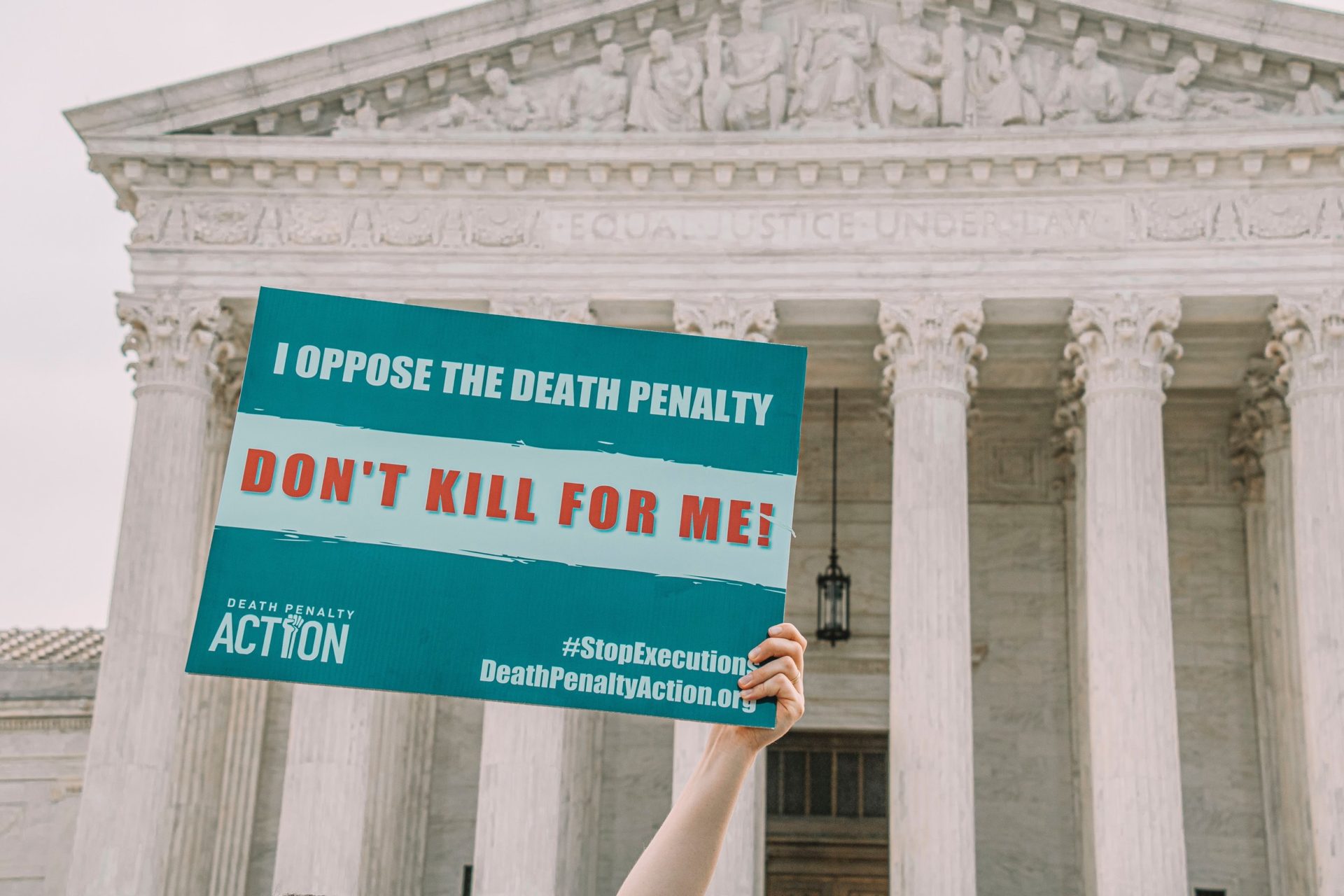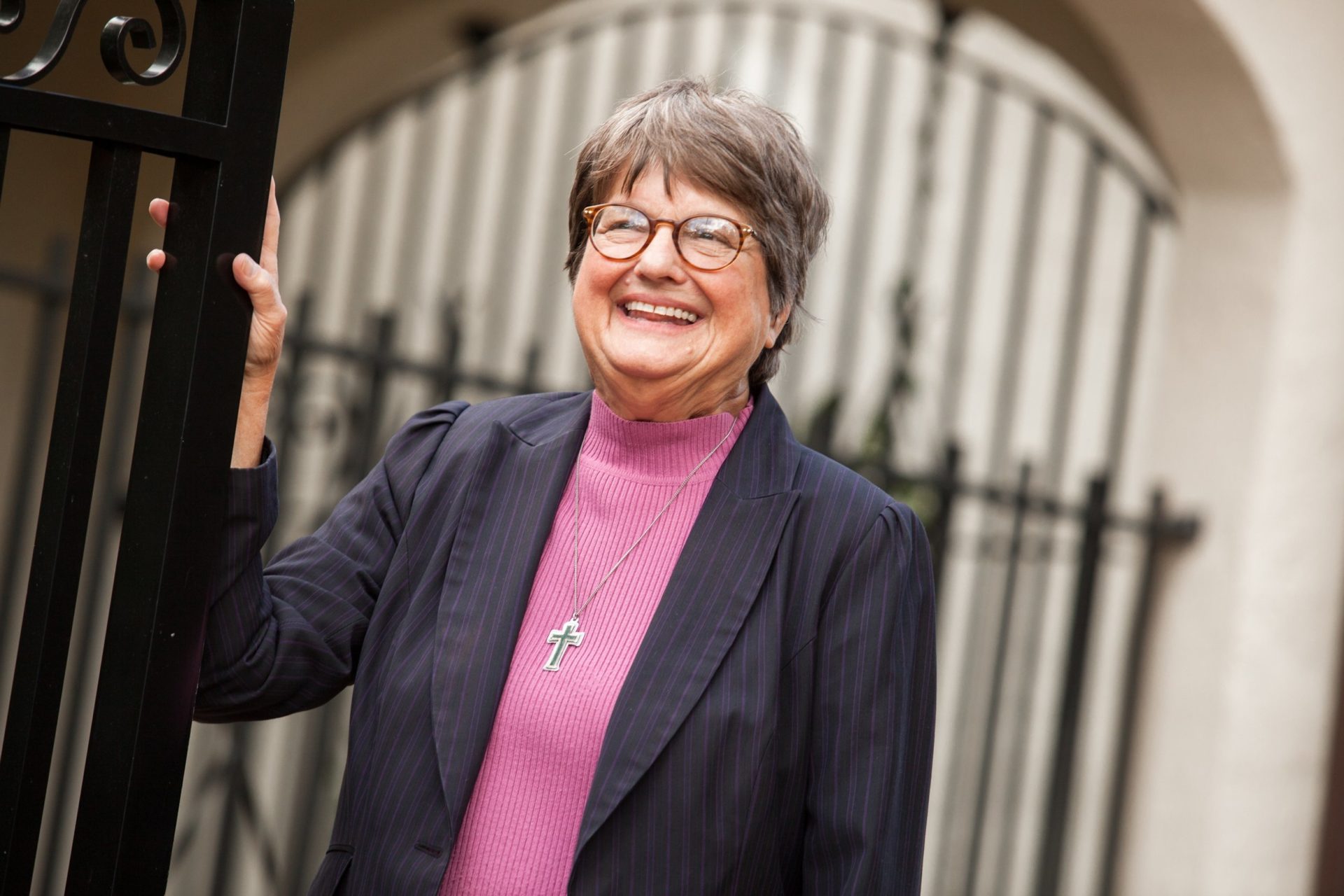
It’s just after midnight, December 29, 1984, and I’m outside Louisiana’s execution chamber on ABC World News Tonight, facing off with the conservative political commentator George Will. The state has just electrocuted to death Robert Lee Willie for raping and killing Faith Hathaway, and anchor Peter Jennings is getting Will’s pro-capital punishment views opposite mi
I’m hardly neutral on the subject. As Robert Willie’s spiritual advisor, I accompanied him to execution and told him to look at my face as the state took his life. As the state killed him, I wanted him to see the face of a fellow human being who respected his dignity.
Will told Jennings that the American people favor capital punishment because it satisfies a deeply felt moral intuition that some crimes deserve the punishment of death, and Willie seemed to have committed one of those crimes. Willie, with another perpetrator, raped and stabbed 18-year-old Faith Hathaway, leaving her to bleed to death alone in the woods. Will thinks the people are right to call for Willie’s death and that vengeance, far from being shameful, can be noble. He sees the death of the murderer as a form of “moral symmetry,” a punishment he considers “morally proportionate” to the crime.
Jennings turns to me. I say that the deliberate killing of a strapped-down defenseless human being is the practice of torture and a grievous abuse of the right to life – the most basic of human rights. I add that the legal killing that has just taken place, almost in secrecy, shields the horror from the eyes of the public. Make executions public, I say, and the people will see the horror of government killings and be motivated to end them.
Jennings presses Will whether average people would be repelled if they were allowed to witness state executions. Will says that’s arguable, but he thinks witnessing executions could have a “very bad coarsening” effect on people.
I’m eager to take that on, how a so-called “noble” act can have a “coarsening” effect, but I don’t get a chance. Jennings ends the program, and I must wait until I write Dead Man Walking (1993) to take on George Will’s arguments. (You can read it for yourself on pages 215-216.)
In the 1980s, our nation (especially in former slave states, where 80% of modern executions take place), began its full-throttle practice of government killings. At the time, most Americans readily agreed with George Will that state killings were justified. And today, when the practice of executions is diminishing dramatically, roughly 50% of Americans continue to support the use of the death penalty (at least in theory) as a just punishment for at least some of the most heinous murders. In a 2019 Gallup Poll, only 36% of Americans voiced support for the death penalty given the option of life imprisonment without parole.
By conversing with American audiences on this subject for the last four decades, I now see more clearly some of the assumptions and reasons why support for government-sanctioned killings came so readily to us. I say “us” because I, too, once supported the state’s right to take the lives of dangerous criminals.
In the ‘70s and ‘80s crime was on the rise and people feared for their safety. Policymakers in those days reasoned that if perpetrators thought that they might have to forfeit their own lives for murdering someone, it might give them pause and deter murders. And in those days, we citizens (myself included) trusted that our court system – arguably the best in the world – would be capable of handling complex life/death cases in a reasonably fair way and at least somewhat expeditiously. Little did we know that the average waiting time between sentencing and execution in the 1990s would be 8 years, and that had grown to over 20 years by 2018. .
I suspect the root problem of our irreparably broken capital punishment system stems from the Supreme Court’s Gregg v Georgia (1976) decision that reinstituted government executions. To correct the “arbitrary and capricious” (“struck by lightning”) way juries were handing down death sentences, the Court attempted to provide new guidelines for capital juries to follow, which proved to be unworkable from the start. The Court set the impossibly fuzzy criteria that for the punishment of death to be meted out the murder would have to be not an “ordinary” murder, but the “worst of the worst”? Who knows what that means?
For example, if someone killed my mother, her murder wouldn’t ordinarily be considered the “worst of the worst” because her killing did not take place during a felony like rape or robbery. Alternatively, the killing of a policeman is considered the “worst of the worst” but, as is stipulated in numerous state statutes, not the killing of a fireman or a public health nurse.
Have we fashioned some sort of meritocracy of death? Isn’t every human life of inestimable worth? And, as for the question about which perpetrators of crimes deserve to die, who can begin to have the wisdom to determine that the perpetrator of even the most egregious murderer is irredeemable and must be put to death to ensure societal safety? Is that not what prisons are for – to protect the public from violent offenders?
Was it hubris or over-confidence that lured the Supreme Court into thinking it possessed the wisdom to fashion a court system capable of morally distinguishing different types of murders? This is an especially pertinent question given our long history of racism in which the Court itself has at times played a reprehensible role, as in the cases of Dred Scott, Plessy v Ferguson, and McClesky v Kemp. Over time, the administration of death has proven to be hands-down racist. Data compiled by the Death Penalty Information Center show that 80% of all state executions are doled to those who kill at least one White person, but far, far fewer to killers of Black people. Nor is anyone surprised to hear that virtually 95% of those who sit on death row around are poor people, who could not afford to hire a private attorney.
As I see it, the other egregious error of judgment the Court made in Gregg v. Georgia was its decision to turn over to prosecutors the complete discretionary power to pursue a death sentence or not. Investing such God-like power in the hands of such politically driven agents has left in its wake a horrific trail of egregious mistakes. Prosecutorial misconduct accounts for 85% of the 186 wrongful death sentences (and counting) in our nation.
There is far too much power in the hands of agents far too human. For prosecutors out to get a conviction it is too easy to hide troublesome police reports, destroy unfavorable forensic evidence, or surprise the defense with a last-minute jailhouse informer to “seal the case.” Above all else, there too little accountability for lives destroyed by this misconduct.
I’m thinking of Glenn Ford, wrongfully convicted in my home state of Louisiana, who sat on death row for almost 30 years before the truth of prosecutorial wrongdoing could be exposed and he was freed. He died one year later of cancer – his entire life sidelined due to injustice.
Thanks to principled journalism and advancing DNA technology, stories of wrongful convictions have become commonplace on the evening news, and I believe this is the primary motivating factor in Americans’ waning support for the death penalty. Not to mention the staggering financial cost of maintaining a capital punishment system: prosecution, defense, court, imprisonment, and long years of appeals. Over the past fifteen years, Louisiana, for example, has spent over two hundred million dollars on its death penalty system that has resulted in a single execution.
As for murder victims’ families, in place of the hollow promise of “closure” prosecutors offer by promising them front row seats to an execution, think of what fiscal resources saved by shutting down capital punishment could do to offer these grieving families genuine healing help. They need unemployment compensation, psychological therapy and health care, grief counseling, and in some cases, funeral expenses. Not to mention, using resources to assuage the pain of grieving families whose loved one’s killer has not even been arrested. In 2020, roughly half of murders remained unsolved.
But even more than the inordinate fiscal costs of the death penalty, I believe the most incalculable loss for us as a people has been the moral costliness.
This brings me back to George Will. It seems to me that what’s gotten to him most of all is the moral cost of government killings – what he calls “healthy squeamishness.” A man of inquiring intellect and conscience, Will descended into the “granular reality” of governmental-imposed deaths, he quickly recognized its “disproportionate social costs.” And as a political conservative, distrustful of government, which he describes as “already too full of itself,” it is not surprising to see him hesitant to invest the state with the greatest power of all: to inflict death on anyone.
Today, George Will leads a growing chorus of conservatives calling for the abolition of the death penalty. To his credit, since we faced off on this issue outside Louisiana’s killing chamber in 1984, he has come a long way in understanding the moral bankruptcy of government-sanctioned killings. So have I.

Sister Helen Prejean
Sister Helen Prejean is known around the world for her tireless work against the death penalty. She has been instrumental in sparking national dialogue on capital punishment and in shaping the Catholic Church’s vigorous opposition to all executions.






